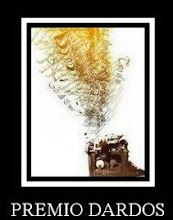
Amid fears that the United States may be in a recession, the decline in stock markets accelerated Tuesday across Asia.
Markets in Tokyo, Hong Kong and Sydney all fell farther in late trading Tuesday than they had all day on Monday. The Hong Kong market plunged another 8 percent by late afternoon after tumbling 5.49 percent on Monday. In Tokyo, the Nikkei dropped 5 percent, hitting a low not seen since September 2005 and facing its worst two-day drop in 17 years on concern global growth is faltering.
The fears of a recession have roiled markets from Mumbai to Frankfurt on Monday, puncturing the hopes of many investors that Europe and Asia would be able to sidestep an American downturn. Until now, overseas markets had largely avoided the sell-off that has caused steep declines recently in the United States, whose markets were closed in observance of Martin Luther King’s Birthday. But investors reacted with what many analysts described as panic to the multiplying signs of weakness in the American economy.
And in a sign that the United States could join the sell-off on Tuesday, trading in stock index futures pointed to a substantial decline when markets reopen on Wall Street.
The angst about the United States belies the popular theory that Europe and Asia are not as dependent on the American economy as they once were, in part because they trade more with each other. The theory, known as decoupling, has been used to explain why economies like China and Germany have kept growing robustly, even as the United States has slowed.
“The market is not at all convinced about decoupling, and I think the market is probably right,” said Thomas Mayer, the chief European economist at Deutsche Bank in London. “When you look at it more closely, we’re suffering from the same issues.”
Monday’s sell-off was evenly distributed from east to west. The DAX index of the Frankfurt Stock Exchange plummeted 7.2 percent, its steepest one-day decline since Sept. 11, 2001. The 7.4 percent drop in the Sensex index in Mumbai was the second-worst single-day tumble in its history.
Stocks followed suit when markets opened in the Western Hemisphere. Canadian stocks were down nearly 5 percent, and a key market index in Brazil was off 6.6 percent.
Shares of banks led the decline Monday in many countries, underscoring that the subprime mortgage crisis continues to hobble the global financial system. On Monday, a German state bank, WestLB, said it would report a loss of $1.44 billion in 2007 because of its exposure to deteriorating mortgage assets.
“There is indeed some panic,” Mr. Mayer said. “What we’re seeing, in Europe and Asia, is that the markets are pricing in a recession.”
Investors were scarcely comforted by President Bush’s announcement on Friday of an economic stimulus package of as much as $145 billion. Mr. Bush’s “shot in the arm,” economists said, did not persuade the rest of the world that the United States will escape a recession, or that it will either.
In reference to the global stock sell-off, Jeanie Mamo, a spokeswoman for the White House, said: “We don’t comment on daily market moves. We’re confident that the global economy will continue to grow and that the U.S. economy will return to stronger growth with the economic policies the president called for.”
The turmoil will put even more pressure on the European Central Bank, which has charted a different course from the Federal Reserve by warning that it might raise interest rates to curb inflation, rather than cut them, as the Fed has, to ward off a recession. Mr. Mayer and others predict the bank will be forced into an about-face in coming months.
While Asia has been less buffeted by the credit crisis than Europe, the Bank of China now appears vulnerable, with analysts predicting it will have to write-down the value of its American mortgage holdings.
Investors in Asia have been in a state of denial about a possible recession in the United States, said Adrian Mowat, JPMorgan’s chief strategist in Asia. But now, he said, many believe “there’s no debate about it.” The only question, he added, is “how long and deep” a recession might be.
In Japan, which may be facing a new recession of its own, most indexes were off Monday by more than 3 percent .
In Europe, the housing market, after a long boom, is cooling, especially in Britain, Spain and Ireland. That will depress the growth rate in those countries, which are among the region’s economic pace-setters.
European banks continue to make unwelcome disclosures about write-downs of mortgage assets, even if the losses are not as dire as those reported by Citigroup or Merrill Lynch. Bank loans across Europe are being constrained, according to a recent survey by the European Central Bank.
German banks, in particular, are haunted by the American subprime crisis. The troubles of WestLB came a week after a German property lender, Hypo Real Estate, lost a third of its market value after it disclosed higher-than-expected losses from the credit crisis. WestLB, after warning that its 2007 losses would be more than twice its earlier estimate, said its biggest shareholders, the state of North Rhine-Westphalia and regional savings bank, had agreed to inject up to 2 billion euros ($2.9 billion) of capital into the bank to stabilize it.
Also on Monday, Commerzbank warned it would make additional write-downs in the fourth quarter of 2007. This caught analysts off guard.
http://www.nytimes.com/2008/01/22/business/worldbusiness/23markets-web.html?th&emc=th


























.jpg)
























































































No hay comentarios:
Publicar un comentario